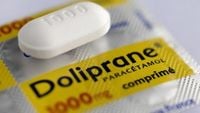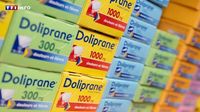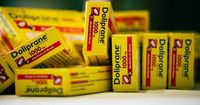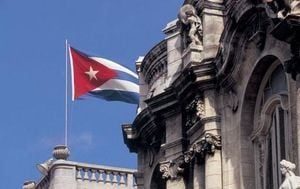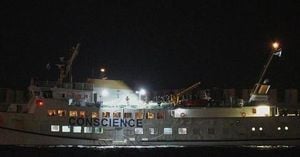On April 30, 2025, the French pharmaceutical giant Sanofi announced the completion of a significant transaction that has sent ripples through the healthcare sector. Sanofi finalized the sale of 50% of its subsidiary Opella, which is the manufacturer of Doliprane, to the American investment firm CD&R. This deal, valued at approximately 10 billion euros, marks a pivotal shift in the ownership of one of France's most prescribed medications.
Doliprane, a popular pain reliever made from paracetamol, has long been a staple in French households, with over 300 million boxes prescribed in the country as of mid-2024, according to the Assurance maladie. This makes it the most prescribed drug in France, far surpassing its closest competitor, Dafalgan, which had only 75 million prescriptions in the same period.
Sanofi's decision to divest part of Opella aligns with its strategic focus on innovative medicines and vaccines. Paul Hudson, CEO of Sanofi, expressed optimism about the future of Opella, stating, "This new chapter marks the beginning of a promising adventure for Opella, which is ready to grow and prosper." Despite the significant change in ownership, Hudson reassured stakeholders that Doliprane would continue to be produced in France, emphasizing that "Doliprane will remain in France for the French people." This sentiment was echoed by Julie Van Ongevalle, CEO of Opella, during the annual shareholder meeting held shortly after the announcement.
The transaction was not without controversy. The announcement in October 2024 had sparked considerable backlash from political leaders and unions concerned about the implications for employment and France's healthcare sovereignty. In response to these concerns, the French government negotiated to secure a 1.8% stake in Opella through Bpifrance, the public investment bank, which also ensures a seat on the board. This arrangement was seen as a way to maintain some oversight over the strategic directions taken by the American firm.
In the wake of the sale, Sanofi retains a 48.2% stake in Opella, allowing it to stay connected to its former subsidiary while pursuing its core mission. The company has also committed to using half of the proceeds from the sale to repurchase shares and invest in growth initiatives, particularly in artificial intelligence, as part of its strategy to enhance its competitive edge in the pharmaceutical industry.
While the financial aspects of the deal are substantial, the human element cannot be overlooked. Employees at Opella had previously expressed their apprehensions about job security and the future of manufacturing sites in France. The unions, particularly CGT and CFDT, had organized strikes, demanding assurances regarding the fate of local operations. In light of these labor concerns, Hudson acknowledged the emotional response the transaction elicited, stating, "We understand the emotion this operation has generated and anticipated it. Doliprane is part of the basic medicine cabinet for French families."
Opella operates in 100 countries, managing 13 production sites and employing around 11,000 people, including 1,700 in France. The company has a diverse portfolio of products, which includes various over-the-counter medications and health supplements. As it embarks on this new chapter under CD&R's guidance, Opella aims to capitalize on long-term trends such as an aging population and the growing interest in daily health management.
Despite the initial uproar, some see this transition as an opportunity for Opella to thrive independently. Eric Rouzier, a partner at CD&R responsible for the health sector in Europe, remarked, "This is an exciting opportunity for CD&R to support Opella in building a global champion in consumer health based in France." The partnership is expected to leverage CD&R's expertise in consumer and healthcare sectors to foster growth and innovation.
As the dust settles on this high-stakes transaction, the future of Doliprane and its production in France remains a focal point of public interest. The government, while supportive of the sale, continues to monitor the situation closely, ensuring that the interests of French consumers and workers are safeguarded. Sanofi's recent actions, including a 14.3% increase in CEO Paul Hudson's annual salary, have also drawn scrutiny, with some stakeholders questioning the fairness of such increases amid labor unrest.
In conclusion, the sale of Opella signifies a transformative moment not just for Sanofi but for the French pharmaceutical landscape as a whole. It highlights the delicate balance between corporate strategy and public sentiment, particularly when it comes to essential healthcare products like Doliprane. As Opella steps into its new role under American ownership, the eyes of France will remain firmly fixed on how this change will impact the availability and production of one of its most trusted medications.
